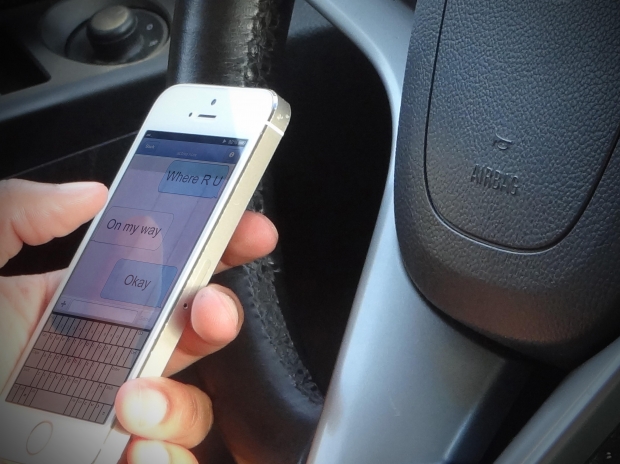
As the smartphone revolution has taken hold, wireless carriers like AT&T have stepped up to tell consumers to take their texting habits off the road. But a new class action lawsuit filed in California this week claims another party holds the key to prevent smartphone-related accidents: device manufacturer Apple.
According to the lawsuit, which was first spotted by 9to5Mac, Apple possesses a lock out technology that can prevent devices from being used by motorists. The suit alleges Apple developed the capability back in 2008 and was granted a patent for it in 2014, but has since failed to incorporate it into devices. Instead, Apple chose to “allow the massive carnage to occur.”
Thus, the plaintiffs in the case are seeking “an injunction against Apple, halting the sale of all iPhones in California without a lock-out device that will disable the iPhone while being driven by an engaged motorist, as well as an order requiring that the company update all currently held iPhones to install a lock-out device thereon.”
To bolster its case, the lawsuit cites statistics from the National Safety Counsel’s injury and fatality report – which found cell phone usage accounted for just over a quarter of all U.S. car accidents – and a 2011 U.S. Department of Transportation’s study, which estimated 9 percent of drivers are texting and driving at any given time. The suit goes on to illustrate the dangers of texting and driving by recounting an incident in which the lead plaintiff was rear-ended at a stoplight by a woman who was texting and driving and suffered a back injury as a result.
But where does Apple’s culpability come in? Well, the lawsuit explains it as follows:
“If texting and driving is a vessel of trouble, Apple is the captain of the ship,” the lawsuit reads. “The
company enjoys 40 percent of the smartphone market share – far more than the nearest competitor. And its profits are enormous.”
The lawsuit ultimately concludes “there is nothing consumers can do to protect themselves from the danger created by Apple’s iPhones.” As evidence for this logic, the lawsuit raises a 2014 research study commission by AT&T and conducted by an addiction expert that found a “physical reaction in our bodies causes us to compulsively check our phones, even while driving.”
But while I buy the idea that consumers are “addicted” to checking their phones – because how many times have I needlessly done it myself? – I don’t buy that Apple is responsible for that behavior. You’re not going to sue Thermos for your coffee habit.
By the lawsuit’s logic, wouldn’t the allegations be better aimed at the apps and websites that produce the content driving that urge to consume? Heck, why not sue every one of your Facebook friends for sharing such titillating posts?
And speaking of AT&T (though definitely not placing any blame here), where are the carriers in all this? With all their connected car progress and ability to track devices as they move from tower to tower, isn’t it possible they, too, have the ability to develop a lock-out mechanism for smartphones in cars?
Oh wait, look at that. AT&T already offers a DriveMode app that silences incoming text message alerts and automatically replies on behalf of the driver. And hey, it’s available on both Android and iOS.
What about car companies? Wouldn’t it be more plausible – and pertinent – for them to come up with and install a smartphone lock out mechanism that works across all device operating systems?
But really, all blame-assigning hypotheticals are moot. We shouldn’t be trying to place blame on anyone other than the driver(s) at fault in these accidents, especially since it’s already illegal to text and drive in California and a number of other states.
The point is that while it would certainly be nice – and would undoubtedly save lives – if Apple or some other party to come forward with a technology to prevent texting a driving, they ultimately aren’t responsible for the actions of consumers, compulsion notwithstanding.




